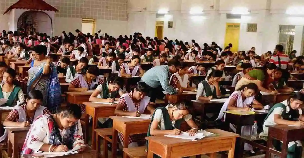The National Council of Educational Research and Training (NCERT) has introduced a new evaluation model for Class 12 board exams, incorporating marks from Classes 9 to 11 and increasing focus on vocational and skill-based training. This proposal is outlined in the report titled “Establishing Equivalence across Education Boards,” which seeks to implement a more holistic assessment approach.
Integrating Marks from Classes 9 to 11 into Class 12 Results
Under this new model, Class 12 board results will not solely depend on a student’s performance in their final year. Instead, cumulative performance metrics will be applied, with 15 percent of the final score coming from Class 9, 20 percent from Class 10, and 25 percent from Class 11. The remaining 40 percent will be based on Class 12 results.
Emphasis on Vocational and Skill-Based Learning
In line with the National Education Policy 2020 (NEP 2020), the report advocates for mandatory vocational and skill-based subjects. This includes Data Management, Coding, Application Development, Artificial Intelligence, and creative fields like Music, Arts, and Crafts. The goal is to foster holistic education by equipping students with diverse and practical skills.
Balanced Assessment: Formative and Summative
The proposed evaluation system for Class 12 will use both formative and summative assessments. Formative assessments, which focus on continuous evaluation, will include self-reflection, student portfolios, teacher evaluations, project work, and group discussions. Summative assessments will consist of traditional term-end examinations. The weightage distribution is detailed as follows:
- Class 9: 70% formative, 30% summative
- Class 10: 50% formative, 50% summative
- Class 11: 40% formative, 60% summative
- Class 12: 30% formative, 70% summative
Improvements in Infrastructure and Teacher Evaluation
Beyond academic evaluation, the report stresses the need for improving school infrastructure and teacher performance assessments. Recommendations include ensuring access to potable water, well-equipped libraries, and sports facilities to create a better learning environment.
This proposal, submitted to the Ministry of Education in July 2024 by PARAKH, a regulatory center under NCERT, seeks to create a more uniform assessment framework across the 32 education boards in India.



